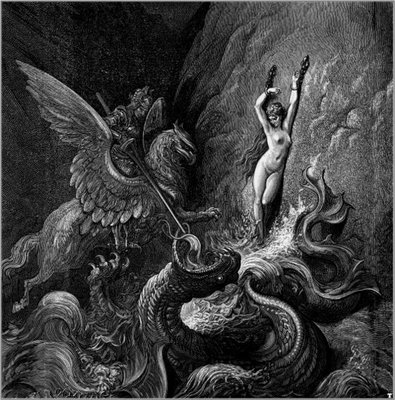Orlando Delights
 The Washington Concert Opera is on the list of every serious opera-lover in the region for increasingly great performances of works they won’t otherwise hear in or near Washington. Music Director Antony Walker (who just signed up to be the MD for the Pittsburg Opera, thankfully without giving up his WCO post) and his staff have a great hand (aided by considerable budget-wizardry) for picking a cast that contains stars of tomorrow, often assembled around one well known quantity of a singer and exceptional vocal talent. Last Sunday night affirmed all positive prejudices when the company performed Handel’s Orlando at the Lisner Auditorium.
The Washington Concert Opera is on the list of every serious opera-lover in the region for increasingly great performances of works they won’t otherwise hear in or near Washington. Music Director Antony Walker (who just signed up to be the MD for the Pittsburg Opera, thankfully without giving up his WCO post) and his staff have a great hand (aided by considerable budget-wizardry) for picking a cast that contains stars of tomorrow, often assembled around one well known quantity of a singer and exceptional vocal talent. Last Sunday night affirmed all positive prejudices when the company performed Handel’s Orlando at the Lisner Auditorium.
Antony Walker is a great champion of baroque opera and it is a delight that Washington finally reaps the benefits of his labor and love. With a period instrument orchestra (yes, they played in tune, Mr. Zukerman) and countertenors, this was not just a starry night for opera fans but any baroque lover, as well.
Since there are still voices that vigorously deny the appeal, much less advantages of Period Performances, it seems right to quote Maestro Walker on the reasoning for his choice of a “HIP” band:
Why should we perform Orlando on period instruments? Handel wrote this music with the intimate knowledge of the expressive and virtuosic capabilities of the instruments of his time. These instruments have changed much since the middle 1700's. The delicate, plaintive qualities of the oboes and bassoons, the beautifully unrefined sound of the horns, the sweet and plangent strings on gut: all this is hard to replicate on the more robust modern instruments. For me it is not a matter of an academic pursuit but a restoration of a vibrant palette of color and incredible expressive potential. Handel lives anew through these instruments and the freshness of approach that their players bring.
Orlando - Handel Orlando Furioso - Vivaldi Orlando finto Pazzo - Vivaldi Roland - Lully Orlando - Porpora Orlando Palladino - Haydn |
In front of the delicate and faultless orchestra (Theorbos, natural horns, 18th century oboes, etc.), the soloists delighted the enthusiastic audience with singing any opera house would have been keen to present. Bejuhn Mehta has morphed into a natural countertenor (if that’s not an oxymoron) and if he’s not the most masculine sounding one, he isn’t one of the (annoying and all too frequently encountered) namby-pamby kind, either. Clean and with a smallish, narrow tone (all very appropriate for the opera and his role), he pleased throughout and added on top of that with just the right kind of subtle acting that enlivens a concert-performance of an Opera. David Walker has a similar talent for acting with just a wink of an eye, a glance, or a small pause. A man of small gestures: the most welcome of acting talents on the opera stage since most singers are sadly lacking it. His voices was less natural that of a countertenor: Upon every entry one expected a light, high baritone to emit – and I was surprised by his pitch just about every time he gave a sample of his great talent.
Stephen Brookes, 'Orlando': WCO Trims The Fat (Washington Post, November 8) T. L. Ponick, Handel's countertenors (Washington Times, November 8) |
The plot, meanwhile, is as fantastical, if not downright harebrained, as it gets (not the only way in which this Opera strangely reminds of some of the more obscure Rossini operas). It is roughly based on the story of Orlando furioso, 46 cantos written by Ludovico Ariosto between 1516 and 1532. The material has also been set to music by Vivaldi - Orlando Furioso and Orlando, finto pazzo, Alessandro Scarlatti - L'Orlando, Lully - Roland (my favorite setting - currently not distributed in the U.S. but hopefully Naxos Distributions will bring it back soon, Porpora - Orlando, and Haydn - Orlando Paladino).
WCO’s next production will be Rossini's Otello with Bruce Ford and Elizabeth Futral on Sunday, April 29th, 2007.




















































